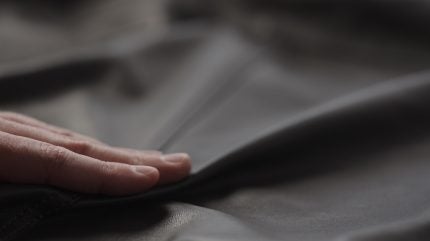
The latest funding round from Modern Synthesis, which was oversubscribed, saw Extantia Capital at the helm, with contributions from Artesian and Collaborative Fund.
The capital infusion will bolster Modern Synthesis’ capacity at its pilot facility and cater to the increasing demand from high-end fashion brands.
This financial boost arrives at a critical juncture with industry research indicating a looming 133 million tonne deficit of low-impact raw materials by 2030, as fashion brands grapple with stringent decarbonisation and climate mandates.
Despite the growing industry demand for sustainable options, eco-friendly textiles currently constitute less than 5% of the $1tn global apparel textile market.
With over 35 impending sustainability-linked regulations poised to transform the sector, companies that neglect to revise their material selections may confront substantial economic perils—with potential impacts on EBIT reaching up to 8%, as per BCG analysis.
Modern Synthesis says its technology offers these brands an opportunity to proactively diversify their raw materials portfolio while introducing novel textures, appearances, and functionalities.
Modern Synthesis’ biomaterial technology
The company’s innovation involves transforming nanocellulose, a robust fibre produced through natural fermentation into high-quality substitutes for animal leather, ‘vegan’ leather, and plastic-coated textiles.
Modern Synthesis’ scalable process employs advanced material science to enhance the inherent properties of nanocellulose, which it claims is eight times stronger than steel at the nano-fibre level.
The resulting biomaterials avoid petrochemicals and harmful substances, thus diminishing their environmental footprint relative to traditional textiles.
Modern Synthesis CEO and co-founder Jen Keane said: “Having demonstrated unprecedented material performance without plastic, we’re primed to offer the fashion market a material solution that can both captivate consumers and unlock a path to circularity. This investment gives us the capacity to work with more brands as we continue to uncover new use cases for the technology.”
The company showcased its technological prowess in September 2023 by unveiling a prototype handbag created in partnership with Danish fashion label GANNI.
Both companies are now working towards a commercial release of GANNI’s Bou Bag featuring Modern Synthesis’ biomaterial.
Extantia Capital partner Yair Reem said: “The first thing that struck us was how this material rivals traditional leathers in look and feel, but can also offer something entirely new that excites designers. Jen’s deep expertise in fashion and design, combined with Ben’s tech-savvy brilliance, has created a game-changing solution that redefines what’s possible with sustainable, high-performance materials. Modern Synthesis represents the future of industry – delivering better, more cost-effective and resilient materials that also happen to be green.”
Artesian Investments partner Alexandra Clunies-Ross said: “We are delighted to partner with Modern Synthesis in their mission to mainstream biobased materials. Our investment decision was driven by the company’s potential to revolutionise traditional manufacturing processes and drive real impact at scale.”



